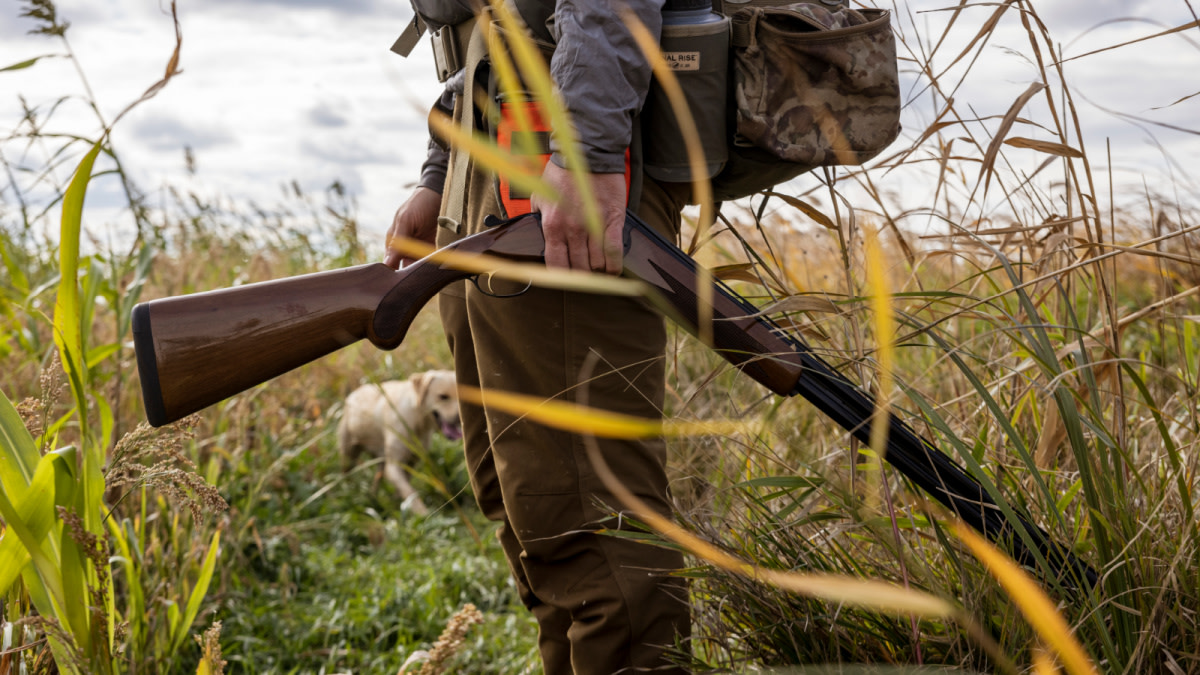Congressman Introduces Bill Repealing Pittman-Robertson

Georgia Congressman Andrew Clyde (GA-09) and 53 cosponsors introduced last month the RETURN our Constitutional Rights Act, which would eliminate the federal excise tax on firearms and ammunition. (RETURN stands for “Repealing Excise Tax on Unalienable Rights Now.”)
This tax, first imposed by the Pittman-Robertson Act of 1937, generates hundreds of millions of dollars every year to fund the conservation and land access efforts of state wildlife agencies. Rep. Clyde said he wants to repeal this funding because the tax infringes on Second Amendment rights.
“In case my Democrat colleagues forgot, the Bill of Rights enumerates rights to which the government cannot infringe. Unquestionably, infringement exists when the government taxes those rights to limit the people's ability to exercise them,” Rep. Clyde said in apress release. “As assaults against Americans’ Second Amendment freedoms continue to emerge, so do treacherous threats that seek to weaponize taxation in order to price this constitutional right out of the reach of average Americans.”
Conservationists see the federal excise tax on firearms and ammunition as a good thing. If you’re one of those conservationists and you feel confused, it might help to read Rep. Clyde’s statement again in the voice ofBoss Hoggfrom Hazzard County, Georgia. It’s not District 9, but it may help. Just a suggestion.
Anyway, Rep. Clyde elaborates on his desire to repeal the excise tax later in his press release: “This tax infringes on Americans' ability to exercise their Second Amendment rights and creates a dangerous opportunity for the government to weaponize taxation to price this unalienable right out of reach for most Americans — a threat that is materializing by the day,” he says.
He cites as an example of this threat arecently introduced billby Rep. Don Beyer (D-VA), which would impose a 1,000% tax on semi-automatic weapons. This bill would increase by a factor of 10 the price of any semi-automatic weapon that does not use rimfire ammunition, and is either capable of holding more than five rounds in a tube fed magazine or uses detachable magazines that can hold more than 10 rounds.
To replace funding to state wildlife departments (what the press release calls “hunter education and environmental care”), Rep. Clyde proposes redirecting unallocated lease revenue generated by onshore and offshore energy development on federal lands, which currently flows into the general fund, to continue funding those conservation programs.
The press release neglects to mention that the maximum amount that can be transferred from oil and gas revenues to wildlife departments is $800 million. That’s a nice chunk of change, but Pittman-Robertson alone generated over $1 billion each year in 2020 and 2021.
“Our conservation model is funded and supported by America’s hunters, shooters, anglers, boaters and other outdoor enthusiasts,” said former Secretary of the Interior David Bernhardt in 2020. “These stewards of conservation generated nearly a billion dollars last year alone and make our country's conservation legacy the envy of the world.”
President Donald Trump was still in office in 2020, and we historically sell more firearms and ammunition when Democrats are in control. So, it’s safe to assume that if we cap Pittman-Robertson/Dingell-Johnson funds at $800 million, we’ll be losing more and more over the next few years.
It’s also worth noting that, according to the National Shooting Sports Foundation (NSSF), gun sales are at unprecedented levels, and firearm production hasrisen substantiallysince the 1990s. If Pittman-Robertson was hurting the gun industry, we would expect the opposite. My sources also tell me that support for Rep. Clyde’s bill among gun makers is essentially nil. These are the folks who have to pay the excise tax well before the consumer purchases the product.
Going all the way back to the root of the issue, Pittman-Robertson was enacted on bipartisan lines in the U.S. House and Senate not to tax firearms. It was enacted to fund wildlife conservation through the purchase of firearms. That might sound like splitting hairs, but there’s a big difference between the two. Even in 1937, I can’t imagine a tax just to squeeze firearm owners would have gone anywhere.
And one last thing: Rep. Clyde owns a gun store in Georgia called Clyde Armory. I’m sure he’s motivated by nothing other than a selfless desire to protect Second Amendment rights, but he stands to gain from repealing the federal excise tax on the product he sells.
If you hate the tax on semi-automatic weapons proposed by Rep. Beyer, make sure your representative knows about it. If you dislike all taxes, please still call your representative and tell them that you love your hunting and fishing, and we need to ensure the funding of habitat and wildlife some other way.
In other words, let’s not throw the baby out with the bathwater. Or cut off our nose to spite our face. Or say whatever you think people want to hear because you’re desperate to get reelected.
Editor's Note: A previous version of this article incorrectly stated that the RETURN Act adjusts angling tax dollars covered by the Dingell-Johnson Act.
Shop
Sign In or Create a Free Account
Related

Policy & Legislation
Where Does All that Pittman-Robertson Tax Money Really Go?

Policy & Legislation
Idaho Congressman Proposes Breaching Snake River Dams to Restore Salmon



